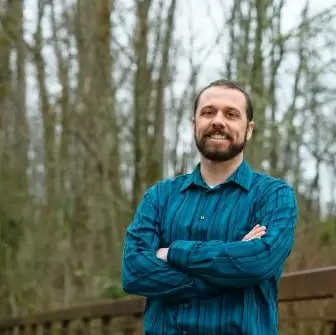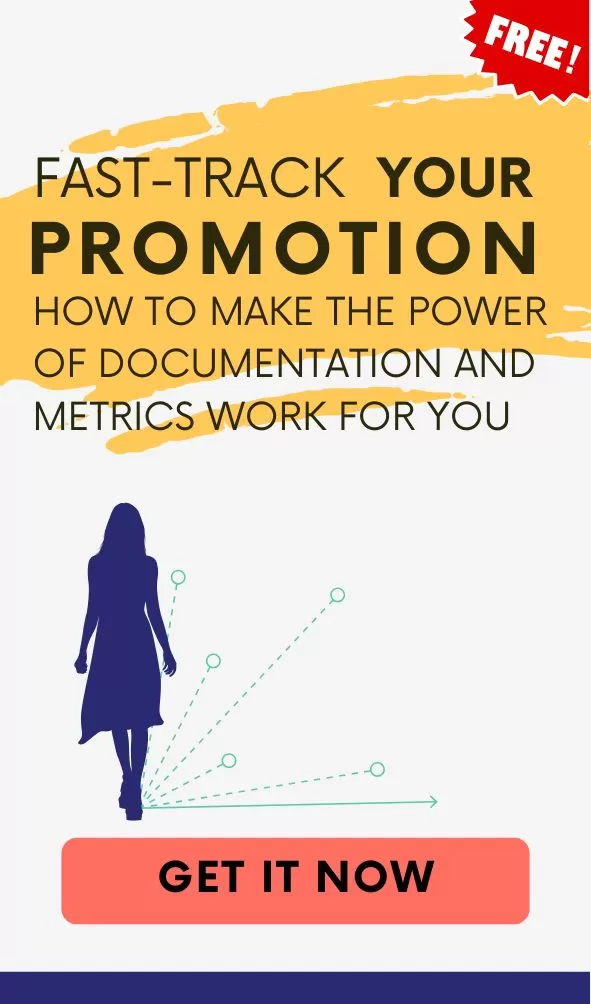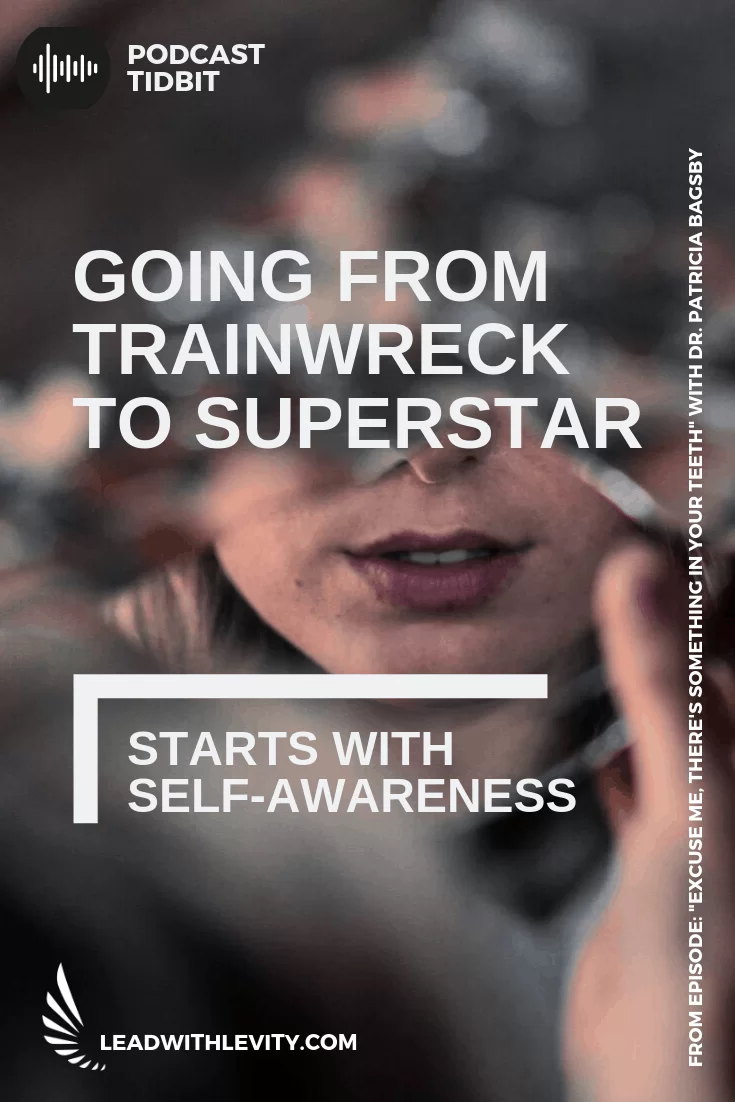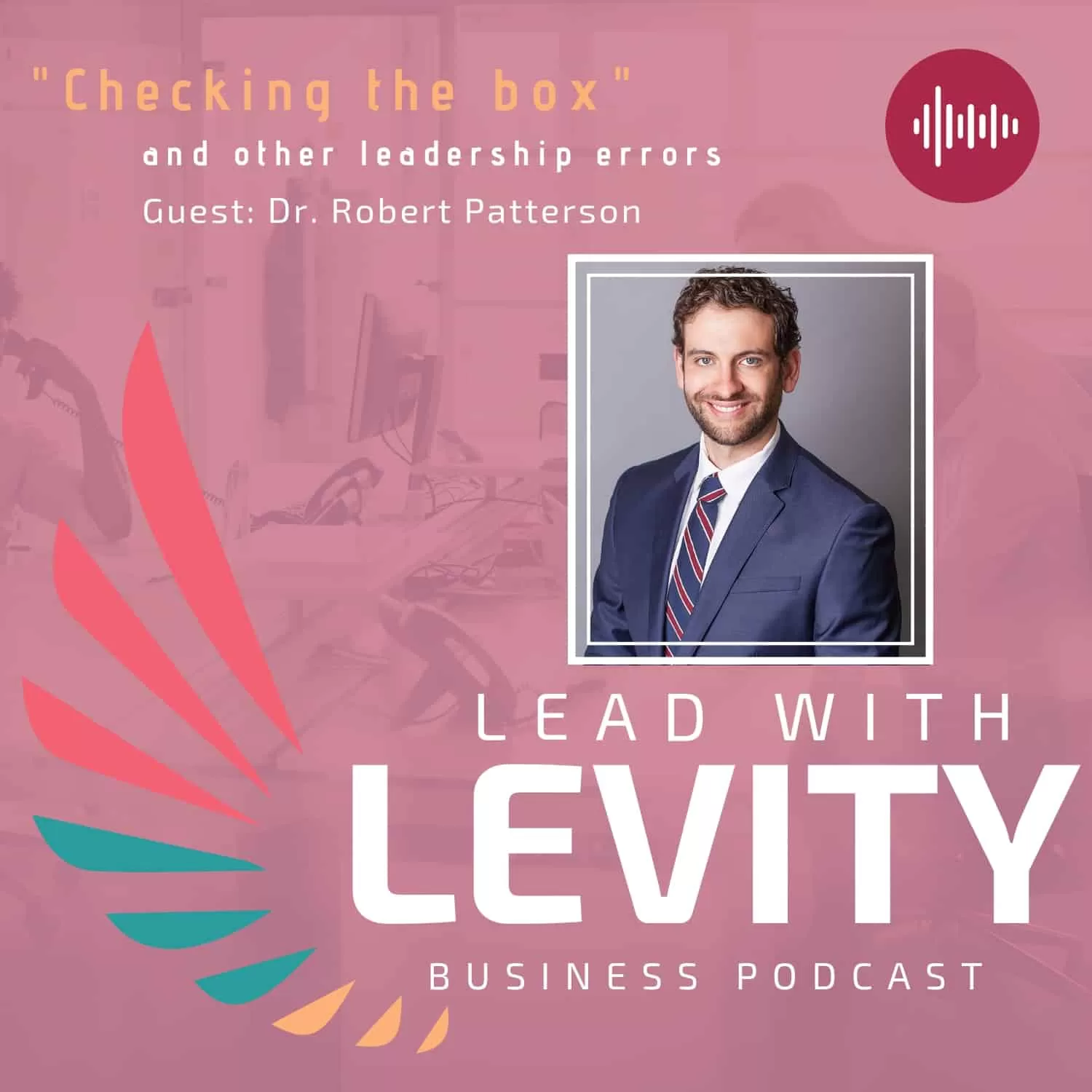When everything feels so so heavy, and you’re starting to wonder if you should lead with levity, remember that the alternative may lead you down a dark and lonely road. I asked our guest today to share her thoughts on fearless authenticity and walking in purpose even when all the signs point to failure.
Welcome to the Lead with Levity podcast. We work to equip leaders to build unique and refreshing work environments that are marked by fun, team unity, and healthy communication. Today’s guest is Danessa Knaupp. Danessa is an executive coach on a mission is to get really great leaders embedded everywhere because we all benefit from that. She’s also the author of Naked at Work: A Leader’s Guide to Fearless Authenticity.
In this episode, we cover:
- How Danessa picked herself up after an embarrassing event
- How you find the lighter side of any bad experience
- A model for authenticity, not #authenticity
- Authenticity misfires
Quote This
Expand to view quotes from Danessa Knaupp
“I began to think about, ‘where have I been really connected with leaders?’ and it was when I believed they were human.”
“A lot of us walk around with an idea of a leader that is far too narrow. Leaders come in all shapes and sizes, they can be effective a million different ways.”
“If you think about some of the things you believe about yourself. The person who wrote that story is 5, 7, 9 years old. I don’t know about you, but I have not consulted with seven year olds on a regular basis on how to make decisions, except that I am. Because the interesting parts of myself that tell me those things are [from a] seven [year old].”
“We are all total and absolute works in progress, and we pick up and put down any baggage or experience we want at any point in this journey.”
“Authenticity builds trust. Trust creates safety, and safety at work is magical.”
“Sometimes, people think when I talk about being intentional and strategic that somehow that’s not authentic. But think about how you are authentic with your grandmother, with your lover, with your best friend, and with your child. Those are all authentic versions of yourself. Those are all really true to you. And yet the whispered conversation between you and your lover, as you fall asleep is never something you would tell your grandmother or your child.”
“My job here is to learn and evolve, and man that is not easy. Sometimes people think that when I say, ‘I’m a failure junkie,’ or, ‘I really embrace failure,’ that I’ve found some sort of way to make it less horrifyingly painful–I haven’t. It’s painful every time. I just know that there’s good stuff on the other side of it.”
“My mission is to get really great leaders embedded everywhere we can, because we all benefit from that.”
Expand to view episode transcript
Heather Walker
Can you tell us a little bit about this whole naked at work concept? What does this mean because lately I’ve been seeing a lot of people who are naked at work, and I can’t imagine that that’s what you mean by this book.
Danessa Knaupp
No, and you know as so many of us have moved to work from home, it is double not what I meant.
Heather Walker
So, making it work. It is a metaphor for authenticity, Heather. It is the idea that you are bringing forward your full self, all the stuff you’ve screwed up, all the stuff that you’ve gotten wrong, that’s gone left in your life, and you’re bringing those experiences and those lessons forward in service to your team. And that’s a critical point here. Not in service to yourself. This isn’t some video confessional that you’re going through 24/7 at work. It’s simply tapping into the full breadth of who you are, in order to connect and lead more effectively.
And how did you get to the point where you said, I’m going to focus on authenticity. What’s the story behind that?
Danessa Knaupp
I think I’ve been in a lifelong master class. And not always in a good or comfortable way. Many of us have been marked by a bunch of really spectacular failures, really sort of cringe moments where you think, ‘Oh, it’s going to be hard to come back from that.’
I’ve realized that I have–scratched and banged up, but I’m back. That lesson, that permanence, that resilience is something that I found has been really compelling as I’ve worked with clients. I’m an executive coach, and I work with really senior leaders across the world. That ability to say, “Look this happened, and you can move on from it, and here’s some lessons I learned. What might you learn from this?” It was a real bridge for us and often created intimacy and connection in a way that others didn’t. I began to think about where have I been really connected with leaders and it was when I believed they were human. When I trusted that brand. Authenticity is a way to build that trust. We’re all pretty worried about showing up in the way we think we should. What we forget is that sometimes distances us from who we are, and other people can feel and see that.
Heather Walker
Interesting. You mentioned that you’ve come through a lot. And, and you’re right. Some people can kind of become debilitated by bad experiences. They can say, “Oh, that didn’t work out. I’m never gonna do that again. I have a five year old, and I feel like every day we have those pep talks. Like, “I know you think you’re gonna fall off with this bike, but it’s gonna be okay and if you don’t continue, you’re never going to want to ride a bike again.” Or, “I know you’re scared to talk in front of this group of people on the Zoom call, but you can do it. It’s gonna be okay.” What is the transformation that has to happen for someone to go from I’m hitting rock bottom or feel like I’ve hit rock bottom. I’m having this bad moment, and I need to to move from this place of self doubt, this place of worry, this place of concern back to my true authentic self who is confident, who is engaged, who’s present–all of that?
Danessa Knaupp
And who does fail, right? And, who is richer because of that. That’s a critical point, Heather. We talk a lot about authenticity. I couldn’t find a single thing that told people how to do it. The question you just asked, I couldn’t find it. And so I wrote it. My book actually has a 6-step process for how you do that and to summarize, what you do is you take a good hard look at what you believe you should be and who you actually are. And you shape, both of those things so that they meet fully. First, a lot of us walk around with an idea of a leader that is far too narrow. Leaders come in all shapes and sizes, they can be effective a million different ways.
But if we believe that they are white men in a boardroom, those of us who aren’t white men or aren’t in the boardroom, or didn’t grow up in private school feel a little bit like outsiders from the very beginning. Part of that is rewriting that for ourselves, seeking out examples of leaders who are different, and who are effective. The examples I bring up in the book are Rose Marcario, the CEO of Patagonia, Sundar Pichai, the CEO of Google. These are nontraditional leaders. Although, we tell ourselves they are traditional. That’s the first piece, and then the second is rewriting your story of yourself. We all carry stories, and those stories are written when we are your daughter’s age.
If you think about some of the things you believe about yourself. The person who wrote that story is 5, 7, 9 years old. I don’t know about you, but I have not consulted with seven year olds on a regular basis on how to make decisions, except that I am. Because the interesting parts of myself that tell me those things are [from a] seven [year old].
Heather Walker
That’s so true. But it’s one of those things that we don’t have time to think about that.
Danessa Knaupp
And yeah my book walks through how do you examine these stories and how do you think about who’s telling them, and honor her, and change the story. This is where I get people who are like, “Well, you know facts are facts.” Man that is true, but there are things that are absolutely true that happened to you. When I was 16 years old I was in a huge local production. I was supposed to sing “I’m gonna wash that man right out of my hair.” I changed my song at the last minute. Learned it, went out, opened my mouth in front of nearly 1000 people across three nights and didn’t remember a single word to the song. That happened. There is no way to reframe that as a success for me. It was a miserable failure. Five years later, when I was doing back to school night, you know, where you come and talk about the college you went to in my high school. The Vice Principal saw me, started humming my song, shook his head, laughed, and walked away. It was an epic failure.
Heather Walker
So they remembered.
Danessa Knaupp
Yeah, I mean it was memorable saying God it wasn’t on YouTube. It was the days before, but this was epically memorable. There wasn’t a single person I went to high school with who cannot tell you this story in more detail. And yet, I could write that two ways. What I learned about myself, and what I started to notice is, for a while I wrote that as a spectacular failure. When you’re 16, that’s about the worst thing you could make happen. There’s nothing worse than that.
When you’re 16, that is worse than death. And then, I noticed that the way I had rewritten it almost unconsciously was, ‘well, that happened, so whatever happens here on can’t be that bad.’ It made me brave. I could do all kinds of things. Because as far as I figured, the worst thing that could possibly happen had already happened, and I was still living and breathing. Teach yourself how to rewrite those stories. Now that’s a pretty light story, Heather. And that’s what we’re talking today–levity. Let’s be clear. I had a devastating divorce. I had a devastating failure in business which I write in some detail about, and I reframed those.
Heather Walker
When you are reframing…what ingredients do you need? I’m thinking about like comedians. For example, comedians have this beautiful ability to speak about their pain, and to wrap it up and share that with the world in a way that that is just so exciting. You know, you hear about it. You can laugh, they can laugh. But it required some time to add some distance some space so they could process it and reframe it in a way that that would be funny so they could laugh about it, and they could move on from that. What are the ingredients for moving away and reframing something very painful and kind of like tragic–something that happened to you that was bad?
Danessa Knaupp
I think the first is something we often label as ‘don’t take yourself too seriously,’ but I like to flip that on its head, Heather. What I would say is remember that you are precious. You are so important. What happens to you, what you did, those missteps–those don’t define you. You are capable, resourceful, and whole as you are today. And these are things that happened. They aren’t who you are. That’s the first, the second is (and this is something we talked about in the book and I work with clients on) watch the tape of what happens. We watch our internal reel with our reaction, and that is loaded. Don’t do that. Watch the tape. See what actually happened. I see myself standing on the stage. I see myself as a 16 year old standing on the stage forgetting. Looking at that as an adult I can see that that is cringeworthy not because that 16-year old is an idiot, but man, that’s painful for her.
Heather Walker
Right.
Danessa Knaupp
I don’t think she’s dumb, or didn’t remember, or is less than. I think, ‘oh, man, that happens sometimes.’
Heather Walker
Okay. That’s true.
Danessa Knaupp
Right. Watch the tape of what happened, and consider what might other observers think or say about that. How can you be the kindest possible version of that for yourself? And then, let’s be clear there are going to be things that you handled poorly, that you did wrong. Even watching the tape you think, “Yep, there’s 100 different ways to do that.” And that’s when you think about, “Okay, what can I mine out of this failure? What did I learn? What did I notice? How am I different now?” That is the idea behind really reframing for me. My children’s father and I have a strong coparenting relationship that we worked on, but for years it wasn’t that way. We were both navigating our own pain, and both of us were people who were not the best versions of ourselves as you often are in pain.
I noticed and reframed for myself–I carried a tremendous amount of guilt about what our divorce did to our children. In hindsight I could have released that. My children are healthier because they have healthy parents. However, what that guilt did is it made me a really present parent. As I look back on that failure, and the failure of how I was thinking about it, and the failure of who I was in my pain, what I glean from that is I was a really conscious mom because of a bunch of reasons that perhaps aren’t valid anymore. And maybe weren’t born of the right stuff. In retrospect, whatever the “right stuff” is, but for me, I was really present. I did things with my kids. I was focused on their activities, driven by ‘I want them to have happy memories to combat this.’ The driver probably was a little off, but man, it really was a gift to me during that time. And that’s about mining–What did you learn? How are you different? What did you explore? Add that to the ongoing evolving story “tell us about yourself.” We are all total and absolute works in progress, and we pick up and put down any baggage or experience we want at any point in this journey.
Heather Walker
Would you say that fear is the biggest obstacle to being authentic?
Danessa Knaupp
Fear is, but it’s a specific kind of fear, Heather. This is where people start to distance themselves a little bit. Your listeners, when I say this they’re gonna be like, “Oh that’s nice, but it’s not about me.”
All right, lay it on us.
Danessa Knaupp
Okay, everybody just take a step back. It’s fear of experiencing shame.
Shame is at the root of a lot of what we do to be inauthentic. Whether it’s shame about the fact that we forgot all the words, shame about the fact that we didn’t make the marriage work, shame about the fact that we didn’t get the promotion or the fear of future shame. “If I say that what will they think about me? If I do that I will look silly and superfluous. People will wonder what I’m doing or question that choice.” It’s the idea that shame will happen, and we don’t like shame, Brene Brown talks about when she tells people she’s a shame researcher on airplanes people become really interested in the flight safety card. There’s lots of deeper meanings of shame, but when I’m talking about shame, I’m talking about the idea that we are unworthy of belonging. [The idea] that we will somehow stand out in a negative way.
And that is a powerful motivator. When you release yourself from that, when you think, ‘hey, I’m not gonna waste my time on that’ because as my grandmother would say, “It’s like rocking in a rocking chair. Lots of energy doesn’t get you anywhere.” When I release myself from that, I’m free. I have 100% of my energy to focus on the thing that is most important. When we redirect our resources we are powerful. So I would say it is fear of experiencing shame because of something that already happened or because of something that might happen.
Heather Walker
That’s interesting. I’m keying into something that you said a minute ago about being afraid of standing out in a negative way. What’s interesting to me is…our listeners are interested in creating the kind of work environment that is just so unique and refreshing, that’s marked by fun, team unity, and really good healthy communication. In some circles that might be perceived as standing out.
Danessa Knaupp
Yeah.
Heather Walker
Standing out in a negative way. They have to step out and say, this is how we’re going to do it. This is the standard. So, how can being naked at work help with that?
Danessa Knaupp
What being naked at work does: When you are centered in yourself…because, let’s face it, the first several chapters of this book could be in a self help manual, but this isn’t a self help manual, it’s a leaders’ guide. The idea is that the work you do on yourself to be more comfortable in that space, to be sort of buttressed or armored against that fear and feel free is because it is in service to your team. What happens when you are naked at work is you create an environment of trust. People believe you are who you are. They understand that. They believe they can come to you. If they know that they failed, but they know that you’re open they can come to you when they’re worried about it. And that creates what Amy Edmondson out of Harvard coined as psychological safety. That’s what we need to feel comfortable, and light, and human at work. Authenticity builds trust. Trust creates safety, and safety at work is magical.
Because people then will innovate at rates they’ve never innovated before. They will create. They will take risks. They will move faster and higher in nearly every measurable way than teams who do not feel safe.
Heather Walker
You’re preaching to the choir sister.
Danessa Knaupp
That’s what we’re here for, right? That’s what your listeners want to do.
Heather Walker
That’s exactly right. So, what do they have to overcome to get started?
Danessa Knaupp
I would say that for your listeners in particular: We’re already kind of stepping out into a place that’s light, and fun, and different. They’re probably through a lot of the self talk about that, and if you’re not my book covers that in detail you can grab it. But, what I would be careful of is what I call an “authenticity misfire.”
I drive a Tesla Model three. I love that car. Such a big fan of what Tesla’s doing for the environment and how they’re pushing innovation. Elon Musk is the poster child for authenticity misfires. He once tweeted a tweet about taking Tesla private about a year and a half ago. And that tweet cost Tesla and Musk personally more in fines from the SEC than Twitter has ever made.
Heather Walker
Yeah, it’s pretty astounding.
Danessa Knaupp
It is, yeah. I mean that was the wrong way to go.
He is authentic without intention. He’s authentic all over the place. He sort of vomits his authenticity in your lap. We’ve all worked for those people, right? Those people that we’ve slowly backed out of the room like, “TMI, I’m just gonna try to unhear what you just said.” That’s not where we want to go. You want to think about being strategic with your authenticity–not inauthentic. Sometimes, people think when I talk about being intentional and strategic that somehow that’s not authentic. But think about how you are authentic with your grandmother, with your lover, with your best friend, and with your child. Those are all authentic versions of yourself. Those are all really true to you. And yet the whispered conversation between you and your lover, as you fall asleep is never something you would tell your grandmother or your child.
Heather Walker
I hope not.
Danessa Knaupp
That would be wrong. And that’s what I mean. Thinking about ‘what can I bring forward?’ An example for me is: I told you the story of forgetting all the words on the stage. I told you enough so that you could understand in the pit of your stomach like, “Whoo, that was bad.” I did not tell you the excruciating detail that I needed to review that in order to make that okay for me. This experience wasn’t about me. It was about just bringing it forward as an example for you.
If you have excruciating detail that you need to work through to uncover pain or to feel differently, that’s a conversation for your therapist or a trusted friend–not your teammate at work. But, when you can get to the place that the comedian is in–when you can get to the place where you can review that and have the lesson to share with the experience to give it context…that’s when you’re ready. Another way that authenticity sometimes misfires, and this is particularly important for my really empathetic leaders, is in stepping into a place of emotional responsibility. Sometimes my really empathetic, high EQ leaders can connect, can feel, can really get lots of great interaction and intimacy (appropriate intimacy) with their work teams. Then they go home exhausted because they’re taking on everyone’s stuff, and they no longer have the energy because they’re thinking about everyone’s marital problems and health problems and caretaker issues.
Emotional responsibility. That’s another authenticity misfire. For our listeners here today who are comfortable with ‘I’m going to be a little different in service to my team,’ really focus in on how do I hone those skills so I’m not either oversharing and it becomes about me or taking responsibility. It becomes so much about ‘how do I hit that sweet spot?’ That’s really about observation and practice.
Heather Walker
Okay. So, where do we start with the practice? Do we start with low risk situations? Where do we begin?
Danessa Knaupp
You start with where it feels a little bit uncomfortable, where you think, ‘You know I could’ve said something but I didn’t. Next time I’m going to try.” And then, notice your experience, and notice the reaction, and try a little bigger next time. It’s like when we learn to drive. You first learn how to adjust the mirrors, how to adjust the seat. Where are you looking? How does it feel sitting there? You don’t take the on ramp onto the highway first.
You’d never drive again.
And sometimes (as adults especially) high performing adults are like, “I got this. I’m on the on ramp!” Nope. Remember you’re a beginner. So try something that feels a little uncomfortable, and then notice how you felt, and try it again. You are going to screw it up. That’s okay. You’re human. Try it again.
That’s called productive discomfort. It’s a little uncomfortable, but you can still function. If leaders are doing authenticity right it should feel like math at school. Math at school is always hard even if you’re doing it right. It’s always challenging. It always involves you. Unlike reading which you learn once, and then you’re reading different stuff, but you can read. Yeah, but if you’re doing math right, if you’re advancing, even with all A’s it’s challenging. That’s what really authentic leadership should feel like.
Heather Walker
You’re so right because we’re people, and people are constantly changing, evolving, and growing. If your team is growing, then yes, you’re constantly going to be challenged to meet those new evolved persons that you have at the office.
Danessa Knaupp
There’s a philosopher who has a quote I love, and if I were better prepared, that I would remember who said this, but it says, “If I’m the same man I was 20 years ago what a waste of 20 years.”
[Note to readers]: The closest quote we could find came from Muhammad Ali, “The man who views the world at 50 the same as he did at 20 has wasted 30 years of his life.” ― Muhammad Ali
Danessa Knaupp
My job here is to learn and evolve, and man that is not easy. Sometimes people think that when I say, “I’m a failure junkie,” or, “I really embrace failure,” that I’ve found some sort of way to make it less horrifyingly painful–I haven’t. It’s painful every time. I just know that there’s good stuff on the other side of it.
Heather Walker
It sounds like you found a way to appreciate it, and because you appreciate it you approach rather than avoid.
Danessa Knaupp
Yeah, that’s probably a really great frame for it. What I’m going to do is either going to work, and that’s going to feel good, or it’s going to fail. And I’m going to learn way more than I did before.
Heather Walker
Great, well thank you. We’re coming up to the end of our time today. This has been so appropriate for the season that we’re in right now, and I really enjoyed having this conversation with you. It even reinforces some of the other interviews that we’ve had earlier this year. For those of you who are interested, I encourage you to check out Donna Hicks’ interview as well about dignity and how we can maintain people’s dignity through trying times. Danessa, is there anything that you want to leave the listeners with today?
Danessa Knaupp
What I would leave them with is the idea that whether you are a spectacular failure or a spectacular success at something–the emphasis is on spectacular. It will make you richer and bringing forward that full self and service to your team will have powerful ripple effects for your organization. My mission is to get really great leaders embedded everywhere we can, because we all benefit from that. It’s been a pleasure to be here, Heather. I’m so grateful to have been part of this conversation. Your mission is one that I really embrace and enjoy. I hope that listeners have enjoyed this conversation. If they have, they would enjoy the book. It’s “Naked at Work: The Leaders Guide to Fearless Authenticity.” It’s out there on Amazon, Barnes and Noble, etc.
Heather Walker
And where can they go to learn a little bit more about your coaching?
Danessa Knaupp
Sure. So, my firm is Avenue8 Advisors, and I am executive coach. I would love to speak with any of them that are interested in executive coaching. We actually provide coaching for all kinds of leaders. We have a whole team of coaches. With this approach of candor or compassion courage and all of that wraps it up into authenticity so we can help with coaching and would love to.
Heather Walker
Great, thank you so much for joining us today.
Danessa Knaupp
Thank you for having me Heather.
Heather Walker
So that was awesome. I feel so renewed, so restored after that conversation. And if any of that resonated with you, I encourage you to leave us a review.
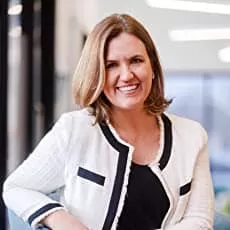
Danessa is an executive coach, CEO, and keynote speaker shifting the global conversation on leadership. She has coached hundreds of executives across every major industry and has developed a reputation as a candid, compassionate and courageous leadership partner. She is the author of the leadership manual, Naked at Work: A Leader’s Guide to Fearless Authenticity and regularly addresses C-suite audiences on how to harness the power of real authenticity (not #authenticity) to drive measurable business results.
Known for her unique ability to drive new levels of engagement and performance with key leaders, Danessa is a fresh, positive voice on leadership, authenticity, and executive team effectiveness. She has coached CEOs, senior leaders, boards, and C-suite teams on issues related to leadership effectiveness, succession planning, M&A integration, and conflict intervention. Her clients have included Anthem, Bain Capital, BlackRock, Capital One, Comcast, Genworth, Hilton, KPMG, Mastercard, Nordstrom and more.
Danessa earned her executive coaching credentials from Georgetown University, and a BA in Psychology and Sociology from the College of William and Mary. She spent more than 20 years as an entrepreneur and a senior executive and ultimately, CEO. She is licensed by the International Coaching Federation and certified in many of the top leadership assessment tools.
About the Podcast
The Lead with Levity podcast is a show for leaders who care deeply about what makes/breaks the employee experience. Our guests are dynamic researchers, practitioners, consultants, and business leaders. We cover foundational elements that are needed to avoid forcing the fun. We also invite lively managers who lead with levity to show us how it’s done. Thanks for joining us on this journey.

